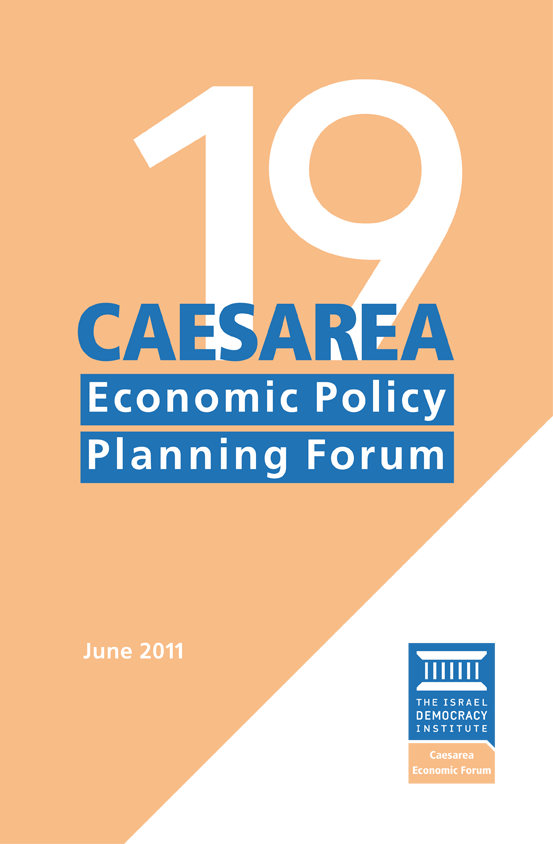The 19th Caesarea Economic Policy Planning Forum
Working Group Recommendations
Prepared for the Caesarea Economic Policy Planning Forum
- Edited By: Zvi Eckstein
- Publication Date:
- Cover Type: Ebook
The Caesarea Economic Forum serves as an effective stage for discussion of social and economic issues central to the public debate. This publication includes summaries of the position papers presented at the 19th Forum. Among the topics were integration into the work force of young adults in the ultra-Orthodox and Arab sectors, the desired model for army service, the Internet as a growth engine for the Israeli economy, and the improving of government regulation and reducing of government bureaucracy.
The Caesarea Economic Forum, which convened for the 19th time in June 2011, dealt – in accordance with past tradition – with issues central to the public debate in Israel in the social and economic fields. Israel's acceptance to the Organization for Economic Cooperation and Development (OECD) is a badge of honor that underscores the strength of the Israeli economy. Joining the organization has provided a driving force for the advancement of important reforms, foremost among them the increasing of the level of participation in the work force and adapting the government bureaucracy to the international standards that the OECD is advancing. This volume presents summaries of the working papers presented at the 2011 Caesarea Economic Forum. These findings and recommendations provide professional groundwork for discussions on the current problems facing Israel.
The first group of papers on the subject of Young Adults: Ages 18–22, comprises two main areas of study: young adults in the ultra-Orthodox and Arab sectors, and conscription to the IDF.
- The paper by Dr. Reuven Gal, Mr. Gilad Malach, and Mr. Hagay Levin describes the desired policy in the eyes of ultra-Orthodox youth and the recent changes in government policy in this area.
- Dr. Aviad Hacohen’s paper presents an up-to-date picture of ultra-Orthodox society in this age group and the issues of employment and academic studies from the view point of this sector.
- Dr. Momi Dahan and Professor Zvi Eckstein present data on the employment and academic situation of young adult Arabs in Israel.
- Professor Avi Ben-Bassat proposes a model for reducing the period of mandatory IDF service, based on a 2006 report of a government appointed committee on shortening the period of mandatory army service.
- Mr. Yossi Kucik reviews the changes that have taken place in Israel in recent years and how they influence the relevance of the people’s army model.
- Mr. Yaacov (Kobi) Haber presents recommendations for retaining the people’s army model.
- Professor Asher Tishler reviews the models of conscription in various countries.
- Major General Avi Zamir, head of the IDF Personnel Directorate, presents these issues from the IDF perspective.
The paper, “The Internet Economy in Israel – A Growth Engine for the Future,” based on a study conducted by McKinsey Israel, commissioned by Google Israel, examines the size of the Internet-based economy in Israel, Internet usage, and employment in the local Internet economy in various sectors.
Papers focusing on the the public sector’s influence on the private sector include the study by Mr. Haim Shani and Dr. Udi Nissan on ways of improving government services. Government regulation from the perspective of the business community is the central focus of the paper by Mr. Motty Shapira and Accountant Shahar Ziv.

